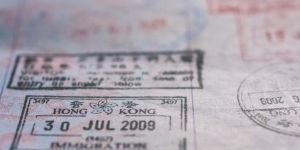
Hong Kong is known as a tax haven for both professionals and businessmen. While the general perception is that you can live, work and run a business in Hong Kong tax-free, this is not entirely true. To make the most out of your stay in Hong Kong, learn about how income tax in Hong Kong works and how to properly set up your taxes.
Do expats pay income tax in Hong Kong?
This may come as an unpleasant surprise, but expats do need to pay income tax in Hong Kong, just like everyone else.
There are actually three main types of taxes in Hong Kong:
- income tax
- profits tax
- and property tax
While you still do indeed need to pay taxes in Hong Kong, you will find some of the most attractive income tax rates here out of any first-world economy. Low income and corporate tax rates make Hong Kong an excellent business and start-up environment.
In fact, a lot of expat professionals and business owners choose to settle in Hong Kong as they can benefit from considerably lower tax rates compared to those in their home countries.
What's more, under the Comprehensive Arrangement, if you are a resident of Hong Kong but work in the mainland, you may also be exempt from taxes in China.
Taxes rates in Hong Kong
The rates for income tax in the region are notably low. You are likely to pay individual income tax at a rate of 15% (tax in Hong Kong is progressive, the more you earn, the more you pay; however, you will not pay more than 17%) and tax on profits at a rate of 16,5% if you have set up a business there.
Hong Kong also has agreements with several countries in order for its foreign residents to avoid double taxation. Note that the different types of taxes applied are not deducted at source.
The tax system is managed by the Hong Kong Inland Revenue Department. The tax year starts on the 1st of April and ends on the 31st of March of the following year.
If you are a resident in Hong Kong, the tax rates are as follows:
Taxable income bank (HK$) | Income tax rate |
1 to 50,000 | 2% |
50,001 to 100,000 | 6% |
100,001 to 150,000 | 10% |
150,001 to 200,000 | 14% |
200,000 | 17% |
How income tax in Hong Kong works
Income tax applies to all persons receiving revenue in Hong Kong, namely employees, retirees, auto-entrepreneurs, etc. Your salary tax will make up the largest part of the income tax, together with bonuses, commissions, etc. Learn more about salary tax and how it is calculated here.
Other types of income taxable in Hong Kong are the income from renting out property in Hong Kong and self-employment income.
What income is taxed in Hong Kong
Employment income
Taxable income is made up of salary, bonuses and gratuities. Most benefits you receive as an expat are non-taxable. Expat benefits are generally non-taxable — unless they can be directly converted into cash. Accommodation provided by an employer is a taxable benefit.
Note that an expat employee's salary is subject to tax if their employment income is sourced in Hong Kong — even if they are not residents in the territory. However, there is a specific statutory exemption that applies to employees who render all or part of their services outside Hong Kong. It also applies to those employees who render their services in Hong Kong — but their visit doesn't exceed 60 days.
Rental income
If you receive rental income in Hong Kong — but it doesn't constitute a business — you will be subject to paying property tax rather than profits tax. Property tax is charged at the rate of 15%.
Note that profits tax, salaries tax and properties tax are all assessed separately in Hong Kong. However, you can choose to go with personal assessment under the salaries tax method. In this case, you will be taxed on your aggregate income from all sources.
Tax for freelancers and self-employed
If you make your money in Hong Kong from selling goods or providing professional or personal services, you will be considered self-employed.
As a self-employed person, you may be a sole proprietor or part of a partnership. Whichever the case, you will need to register your activity with the Inland Revenue Department (IRD).
If you are considered self-employed in Hong Kong, you are subject to a profits tax that is calculated based on your assessable profits.
If you are self-employed in Hong Kong, you will need to do the following:
- Keep business records of your activities for at least seven years
- Prepare reports based on your accounting records
- Fill in and submit tax returns for your business's profits or losses
- If you haven't received your tax return form from the Inland Revenue Department, you will need to notify them in writing of your tax liabilities
- Notify the Inland Revenue Department about the potential cessation of your business and change of address.
Tax returns in Hong Kong
Employees receiving taxable income generally receive a tax return BIR60 form (Tax Return - Individuals). Companies, for their part, receive the BIR51 form, while auto-entrepreneurs receive the BIR52 form. Non-residents receiving income or benefits in Hong Kong have to fill out the BIR54 form. Finally, individuals and companies owning real estate property in Hong Kong have to fill out the BIR57 and BIR58 forms, respectively. These forms have to be duly filled and signed and sent to the Inland Revenue Department (IRD). Thereafter, income tax has to be paid before the deadline indicated on the tax assessment issued by the IRD.
If you are going to pay tax for the first time (in the case of a first job, first tax ceiling reached, benefits, annuities, etc.), you are required to inform the IRD within four months following the end of the tax year. You will then have to fill out an IR6167 income tax form, or an IR6168 form for tax on benefits, or an IR6129 form for property tax. The following documents have to be produced:
- a handwritten letter
- your identity card or passport number
- your records number
- your postal address
- your phone number (mentioning time schedules when you can be contacted).
Important:
In case you have not received any document, you are required to notify the IRD that you are not taxable.
Property tax in Hong Kong
If you plan to purchase property in Hong Kong, you need to be aware of the region's Buyer's Stamp Duty (BSD). Hong Kong imposes Buyer's Stamp Duty on all second-time home buyers and foreign home buyers at a rate of 15%. This is done in order to limit property speculation and foreign property ownership in Hong Kong.
Good to know:
If you become a permanent resident in Hong Kong and receive a permanent residence card, you will no longer need to pay Buyer Stamp Duty.
Paying taxes in Hong Kong
There are various ways to pay taxes in Hong Kong.
Firstly, you can pay by phone, online, or at an ATM. However, you will require a TRC Account Number, which you can request from the TRC Section by filling out an IR1306 form. Note that you must be in possession of a tax assessment to be able to use this payment mode. The Shroff Account Number for electronic payments, which is an 11-digit number (containing dashes and letters), is printed on this document. The first numbers have to be deleted as you get started. In case of payment by phone or at the ATM, the 'A' has to be deleted. Finally, in the case of online payment, some banks will require the 'A' while others will not.
If you prefer to make payment by post, you can send a cheque to the Government of the Hong Kong Special Administrative Region (Government of the HKSAR). You are required to write the Shroff Account Number on the back of the cheque and to follow the instructions given in the tax notice. You can then send the letter to the Commissioner of Inland Revenue, P.O. Box 29015, Gloucester Road Post Office, Hong Kong.
On-the-spot payment is also accepted at regular post offices (except at mobile post offices). You can then pay either in cash or by check. Note that payment can also be made at the Revenue Tower in Wan Chai and at the Gloucester Road post office.
Finally, you can send a crossed-check to the address mentioned below if you have a bank account in Hong Kong. You are required to write your reference number, as well as the Shroff Account Number on the back, along with an acknowledgment of payment which you will send to the Commissioner of Inland Revenue, P.O. Box 28282, Gloucester Road Post Office, Hong Kong.
In case you do not have a bank account in Hong Kong, you might as well sent an HK$ check or a foreign currency crossed-check in the same order as indicated above and at the same address. However, a foreign currency crossed-check has to bear your tax number and the Shroff Account Number.
Important:
Given the variations in exchange rates, you are advised to pay a slightly higher amount than what is mentioned in the tax assessment sent by the IRD. Any excess will be refunded via an HK$ cheque.
Corporate tax in Hong Kong
Corporate tax in Hong Kong is charged at the rate of 16.5% of assessable profits.
In addition to corporate tax, companies in Hong Kong may also be subject to other types of taxes, such as salaries tax, property tax, and stamp duty. It is important for businesses in Hong Kong to understand their tax obligations and to ensure that they are in compliance with all applicable tax laws and regulations
However, there are a number of exemptions and concessions that may be available to certain types of businesses, such as small and medium-sized enterprises (SMEs) as well as startups. As a result, there may be quite a few incentives provided to foreign companies to continue driving investments. This is why Hong Kong remains one of the most competitive tax environments for both local and expatriate entrepreneurs.
Useful links:
Inland Revenue Department - Department of local taxes
Inland Revenue Department - Tax Guide for first-time taxpayers
Inland Revenue Department - Individual income tax guide
Inland Revenue Department - Property tax
Inland Revenue Department - Tax on profits
Inland Revenue Department - Individual income tax
Inland Revenue Department - Corporate tax
Inland Revenue Department - Employers' tax
IR6167 form - Registration as an individual taxpayer
IR6167 form - Registration as an entrepreneur
We do our best to provide accurate and up to date information. However, if you have noticed any inaccuracies in this article, please let us know in the comments section below.








